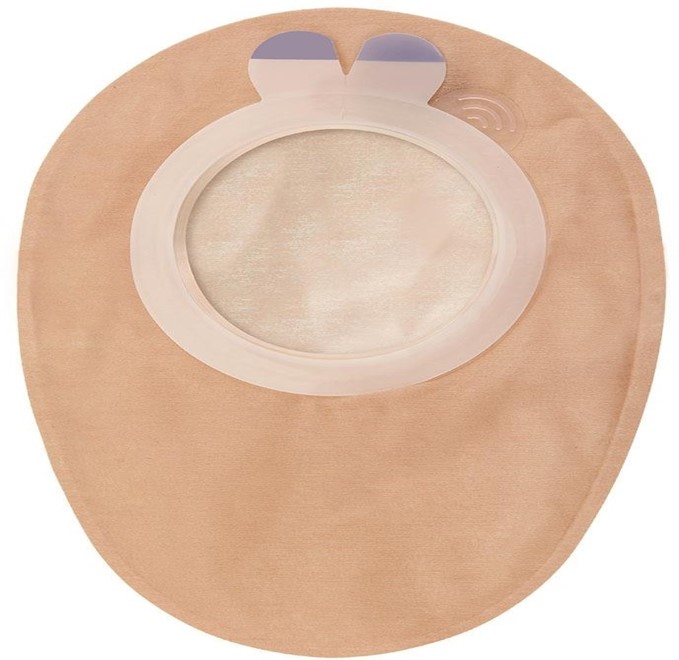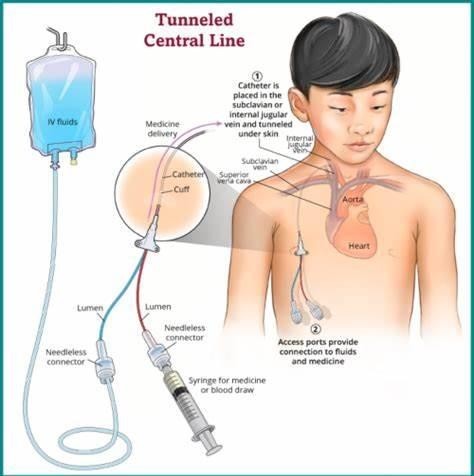A nurse who works in a long-term care facility is delegating aspects of client care to unlicensed assistive personnel (UAP). Which assignment(s) should the nurse delegate? (Select all that apply.)
Identify locations of skin lesions on a newly admitted client.
Empty the ostomy bag for a client with a temporary colostomy.
Provide a complete bed bath for a comatose client.
Perform foot care including toenail trimming and heel care.
Give mouth care to an elderly client who has a tracheostomy.
Correct Answer : B,C
Choice A Reason: Identifying locations of skin lesions on a newly admitted client is a nursing assessment that requires clinical judgment and cannot be delegated to the UAP.
Choice B Reason: Emptying the ostomy bag for a client with a temporary colostomy is a routine task that does not require clinical judgment and can be delegated to the UAP.
Choice C Reason: Providing a complete bed bath for a comatose client is a routine task that does not require clinical judgment and can be delegated to the UAP.
Choice D Reason: Performing foot care including toenail trimming and heel care is a nursing intervention that requires clinical judgment and cannot be delegated to the UAP. The UAP may cause injury or infection to the client's feet, especially if the client has diabetes or peripheral vascular disease.
Choice E Reason: Giving mouth care to an elderly client who has a tracheostomy is a nursing intervention that requires clinical judgment and cannot be delegated to the UAP. The UAP may cause trauma or aspiration to the client's trachea, especially if the client has poor oral hygiene or respiratory secretions.

Nursing Test Bank
Naxlex Comprehensive Predictor Exams
Related Questions
Correct Answer is D
Explanation
Choice A reason: Confronting the nurse manager as a group may not be effective or appropriate, as it may create more conflict and resentment. The charge nurse should follow the chain of command and escalate the issue to a higher authority if the nurse manager fails to act.
Choice B reason: Attending procedures performed by the surgeon and demanding halting of the procedure if the client becomes distressed may be seen as insubordination and interference by the surgeon, who may have legal authority to perform the procedure. It may also jeopardize the client's safety and outcome.
Choice C reason: Documenting client reactions to invasive procedures performed by the physician in their medical record is important, but not sufficient. It does not address the root cause of the problem, which is the surgeon's lack of empathy and respect for clients' pain and dignity.
Choice D reason: Reporting the physician's lack of concern for clients' pain during invasive procedures to the Director of Nursing is the most important action for the charge nurse to take, as it may lead to an investigation and corrective measures. The Director of Nursing has more power and responsibility than the nurse manager to deal with such issues and protect clients' rights and welfare.

Correct Answer is D
Explanation
Choice A Reason: Announcing the new plan at a special employee wellness event may be a good way to promote the plan and celebrate the achievement, but it is not the most important action. The nurses working on the committee should first communicate the plan to their colleagues and address any questions or concerns they may have.
Choice B Reason: Determining staff opinion of current healthcare insurance costs may be useful for evaluating the need and feasibility of the new plan, but it is not the most important action. The nurses working on the committee should have done this before developing and approving the new plan, not after.
Choice C Reason: Surveying the nurses to see who wants to keep the old benefits plan may be helpful for assessing the satisfaction and acceptance of the new plan, but it is not the most important action. The nurses working on the committee should have considered the preferences and needs of their colleagues during the development and approval of the new plan, not after.
Choice D Reason: Being available to all shifts to discuss the changes in health benefits is the most important action for the nurses working on the committee to implement, as it shows respect and transparency for their colleagues, and fosters a collaborative and supportive work environment. The nurses working on the committee should explain the rationale and benefits of the new plan, and provide feedback and guidance to their colleagues.
Whether you are a student looking to ace your exams or a practicing nurse seeking to enhance your expertise , our nursing education contents will empower you with the confidence and competence to make a difference in the lives of patients and become a respected leader in the healthcare field.
Visit Naxlex, invest in your future and unlock endless possibilities with our unparalleled nursing education contents today
Report Wrong Answer on the Current Question
Do you disagree with the answer? If yes, what is your expected answer? Explain.
Kindly be descriptive with the issue you are facing.
